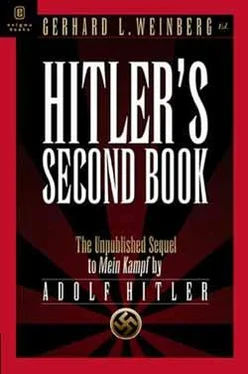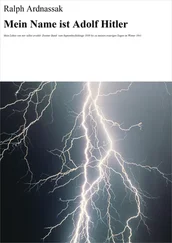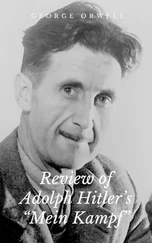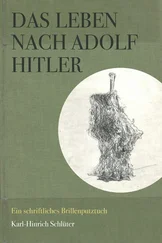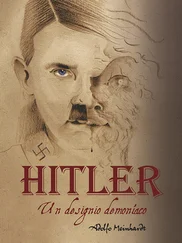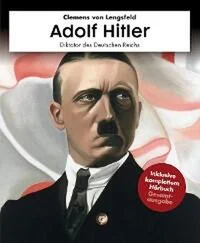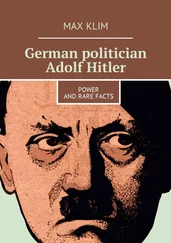Thus the new borders of the Reich, viewed in a national political sense, were incomplete. They ran straight across German language areas, and even through parts which, at least formerly, had belonged to the German Union, even if in an informal way.
But these new borders of the Reich were even more unsatisfactory from a military viewpoint. Everywhere were unprotected, open areas which, especially in the West, were, in addition, of decisive importance for the German economy, extending far beyond the border areas. These borders were all the more unsuitable in a military political sense, since grouped around Germany were several great States with foreign policy aims as aggressive as their military means were plentiful. Russia in the east, France in the west. Two military States, one of which cast covetous glances at Eastern and Western Prussia, while the other tirelessly pursued its centuries old foreign policy goal for the erection of a frontier on the Rhine. In addition there was England, the mightiest maritime power of the world. The more extensive and unprotected the German land borders were in the east and west, the more restricted, by contrast, was the possible operational basis of a naval war. Nothing had made the fight against German submarine warfare easier than the spatially conditioned restriction of its port areas. It was easier to close off and patrol the triangle shaped body of water than would have been the case with a coast, say, 600 or 800 kilometres long. Taken all in all, the new borders of the Reich as such were not at all satisfactory from a military point of view. Nowhere was there a natural obstacle or a natural defence. As against this, however, everywhere were highly developed power States with hostile thoughts in the back of their minds. The Bismarckian premonition that the new Reich founded by him would once again have to be protected with the sword was most deeply justified. Bismarck expressed what was fulfilled forty five years later.
As little satisfactory as the new Reich borders could be in a national and military political sense, they were nevertheless even still more unsatisfactory from the standpoint of the possibility of sustenance of the German Folk.
Germany in fact was always an overpopulated area. On the one hand this lay in the hemmed in position of the German nation in Central Europe, on the other in the cultural and actual importance of this Folk and its purely human fertility. Since its historical entry into world history, the German Folk has always found itself in need of space. Indeed, its first political emergence was forced primarily by that need. Since the beginning of the migration of Folks, our Folk has never been able to settle this need for space, except through conquest by the sword or through a reduction of its own population. This reduction of the population was sometimes effected through hunger, sometimes through emigration, and at times through endless, unfortunate wars. In recent times it has been effected by voluntary birth control.
The wars of the years 1864, 1866 and 1870-71, had their meaning in the national political unification of a part of the German Folk and thus in the final end of German State political fragmentation. The black, white, red flag of the new Reich therefore did not have the slightest ideological meaning, but rather a German national one in the sense that it overcame the former State political fragmentation. Thus the black, white, red flag became a symbol of the German Federal State which had overcome the fragmentation. The fact that, notwithstanding and despite its youth, it enjoyed a positively idolatrous veneration, lay in the manner of its baptism, for indeed the very birth of the Reich towered infinitely above otherwise similar events. Three victorious wars, the last of which became a literal miracle of German statesmanship, German military leadership, and German heroism, are the deeds from which the new Reich was born. And when it finally announced its existence to the surrounding world in the imperial proclamation, through its greatest imperial herald, the thunder and rumbling of the batteries at the front surrounding Paris reechoes in the blare and the flourish of the trumpets.
Never before had an Empire been proclaimed in such a fashion.
But the black, white, red flag appeared to the German Folk as the symbol of this unique event exactly as the black, red and yellow flag is and will remain a symbol of the November Revolution.
As much as the individual German States increasingly fused with one another under this banner, and as much as the new Reich secured their State political prestige and recognition abroad, the founding of the Reich still did not change anything with regard to the major need, our Folk’s lack of territory. The great military political deeds of our Folk had not been able to give the German Folk a border within which it would have been able to secure its sustenance by itself. On the contrary: in proportion as the esteem of German nationality rose through the new Reich, it became all the more difficult for the individual German to turn his back on such a State as an emigrant, whereas, conversely, a certain national pride and a joy in life, which we find almost incomprehensible today, taught that large families were a blessing rather than a burden.
After 1870–1871 there was a visibly rapid increase in the German population. In part its sustenance was covered through the utmost industry and great scientific efficiency with which the German now cultivated his fields within the secured frontiers of his Folk. But a great part, if not the greatest, of the increase in German soil productivity was swallowed up by an at least equally great increase of the general living requirements which the citizen of the new State now likewise claimed. The nation of sauerkraut eaters and potato annihilators, as the French derisively characterised it, now slowly began to adjust its living standard to that of other Folks in the world. Thus only a part of the yield of the increase of German agriculture was available for the net population increase.
As a matter of fact, the new Reich never knew how to banish this need. Even in the new Reich, at first, an attempt was made to keep the relation between population and land within tolerable limits through a permanent emigration. For the most shattering proof of the soundness of our assertion of the towering importance of the relation between population and land lies in the fact that, in consequence of this disproportion, specifically in Germany during the 1870s, 1880s and 1890s, the distress led to an epidemic of emigration which even at the beginning of the 1890s had swollen to a figure of nearly one and a quarter million people a year.
Thus the problem of the sustenance of the German Folk had not been solved for the existing human mass, not even by the foundation of the new Reich. A further increase of the German Nation, however, could not take place without such a solution. Regardless of how such a solution might turn out, it had to be found in any case.
Hence the most important problem of German foreign policy after 1870–1871 had to be the question of solving the problem of sustenance.
Chapter 8
MILITARY POWER AND FALLACY OF BORDER RESTORATION AS GOAL
On November 11th, 1918, the armistice was signed in the forest of Compiègne. For this, fate had chosen a man who was one of those bearing major guilt for the collapse of our Folk. Matthias Erzberger, deputy of the Centre, and according to various assertions the bastard son of a servant girl and a Jewish employer, was the German negotiator who affixed his name to a document which, compared and measured against the four and a half years of heroism of our Folk, seems incomprehensible if we do not assume the deliberate intention to bring about Germany’s destruction.
Читать дальше
